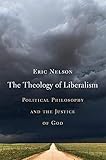Theology of liberalism political philosophy and the justice of God
Material type: TextPublication details: Cambridge The Belknap Press of Harvard University Press 2019Description: xii, 218p. 25 cmISBN:
TextPublication details: Cambridge The Belknap Press of Harvard University Press 2019Description: xii, 218p. 25 cmISBN: - 9780674240940
- 261.7 23 NE-T
- BR1615 .N45 2019
 Print
Print
| Item type | Home library | Collection | Call number | Status | Date due | Barcode | |
|---|---|---|---|---|---|---|---|
 Print
Print
|
OPJGU Sonepat- Campus Main Library | General Books | 261.7 NE-T (Browse shelf(Opens below)) | Available | 143500 |
Includes bibliographical references and index.
Pelagian origins -- Representation and the fall -- "The bargain basis": Rawls, anti-Pelagianism, and moral arbitrariness -- Egalitarianism and theodicy -- Justice, equality, and institutions -- "God gave the world to Adam, and his posterity in common": appropriation and the Left-Libertarian challenge -- Conclusion: Back to representation.
We think of modern liberalism as the novel product of a world reinvented on a secular basis after 1945. In The Theology of Liberalism, one of the country's most important political theorists argues that we could hardly be more wrong. Eric Nelson contends that the tradition of liberal political philosophy founded by John Rawls is, however unwittingly, the product of ancient theological debates about justice and evil. Once we understand this, he suggests, we can recognize the deep incoherence of various forms of liberal political philosophy that have emerged in Rawls's wake.--
There are no comments on this title.

